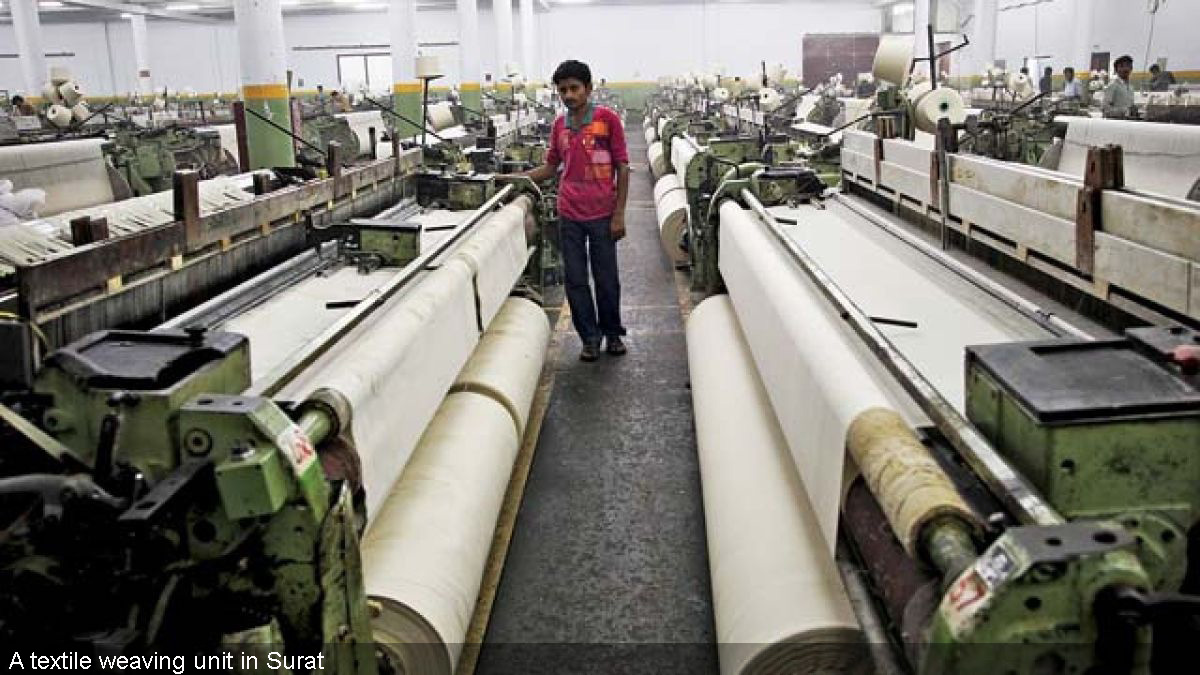
Category: General
Country: India
Region: South Asia
Despite fervent appeals from industry stakeholders, the Ministry of Textiles, Government of India, has declined to extend any relief, leaving the sector in a state of uncertainty and concern.
Cover_
A textile weaving unit in Surat
By TBT Web Desk
Last updated Oct 7, 2023.
Surat : India’s textile industry faces an unprecedented challenge as the Central Government proceeds with the implementation of the Quality Control Order (QCO) on fully drawn yarn (FDY) and partially oriented yarn (POY), effective since October 5, 2023. Despite fervent appeals from industry stakeholders, the Ministry of Textiles, Government of India, has declined to extend any relief, leaving the sector in a state of uncertainty and concern.
In a related development, the government also announced the extension of the implementation date for the Geo Textiles (Quality Control) Order, 2022, which was originally slated for October 7, 2023. It will now be enforced from January 1, 2024. While this delay offers some respite to certain segments of the textile industry, the powerloom weavers in Surat have been grappling with the consequences of the QCO orders on FDY and POY yarns in the polyester yarn segment.
Leaders of the textile community, including the Surat-based Pandesara Weavers Co-operative Society Ltd and the Southern Gujarat Chamber of Commerce and Industry (SGCCU), have jointly submitted a letter to the central government. In their appeal, they urgently requested the revocation of QCO orders pertaining to FDY and POY yarns or, at the very least, an extension of the implementation date by an additional nine months. Their plea is rooted in the legitimate concerns raised by the consumer industry, which fears the negative impact of this abrupt policy change.
The powerloom sector in Surat has made significant investments, totaling a staggering ₹60,000 crore, to install 1,20,000 high-speed weaving machines and over 3,000 high-speed knitting machines. An equivalent number of machines are expected to be installed in the next five years. These machines are exclusively reliant on AA-grade FDY and POY yarns. Presently, the industry demands a yearly supply of 12 lakh tons of yarn, a number predicted to double within the next five years. In stark contrast, domestic spinning mills produce a mere 1.2 lakh tons of AA-grade yarn, resulting in a substantial supply-demand gap.
Ashish Gujarati, former president of SGCCI, expressed grave concerns over the situation, emphasizing that roughly 90% of the polyester yarn-based weaving industry is concentrated in South Gujarat. Heavy investments have poured into this sector, thanks to incentives like the Technology Upgradation Fund (TUF) and other government initiatives aimed at modernizing fabric manufacturing. The sudden imposition of controls on the import of high-quality raw materials threatens to disrupt manufacturing operations.
The textile weaving industry relies heavily on imported supplies of FDY and POY yarns, and the QCO has banned a total of 16 types of yarn, including many specialty yarns that are not produced domestically. This development has sent shockwaves throughout the sector, raising concerns about the industry’s ability to meet growing demands while maintaining product quality.
Courtesy: Theblunttimes.in
Copyrights © 2026 GLOBAL TEXTILE SOURCE. All rights reserved.